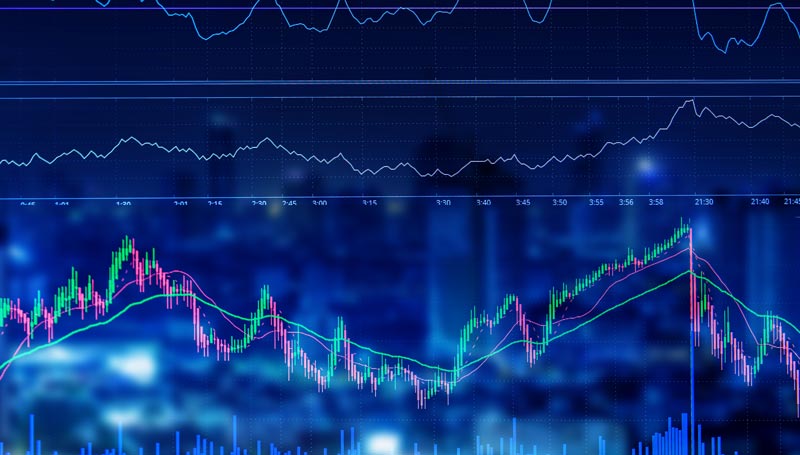

22.05.2019 – Daily report. What’s going to happen with the big issues in the world? No movement in the customs dispute between China and the USA. Perhaps even new punitive actions by the Americans. More provocations about Iran. It’s no wonder that the Asian stock market remained on the sidelines. Nevertheless, the DAX gained moderately.
The DAX wants to go up
The DAX posted moderate gains on Wednesday afternoon. The targets from the USA looked good: The Dow Jones Industrial advanced by 0.8 percent to 25,877 points on Tuesday. The US government loosened the strict measures against Huawei that had only been enacted last week. For an initial period of 90 days, some transactions are now permitted again, primarily for the supply of smartphones that have already been delivered and the operation of mobile networks. The Nasdaq 100 recovered by around 1 percent to 7451 points and the S&P 500 climbed by 0.9 percent to 2864 points.
Chinese water torture against Beijing
But then news about the tariff dispute hit the US futures and the yuan, the Nikkei crawled up by only about 0.1 percent to 21,283 points. And the Chinese CSI 300 slipped 0.5 percent to 3,649 points.
That had happened: According to a report in the New York Times, the Trump administration wants to prohibit another Chinese high-tech company from buying American technology. Specifically, Hangzhou Hikvision Digital Technology is to be blacklisted. The company, which is controlled by the Chinese government, is currently the world’s largest provider of video surveillance systems and is active in around 100 countries. Officially, Hangzhou is to be punished for monitoring the Uighurs in China.
This means that Washington is now taking on the next important Chinese group after Huawei. Here, too, there is news. “ZeroHedge” reports that, according to Bloomberg, Huawei has been a candidate for a fist lien in the customs dispute with China for months. The news agency reported that the Trump team had waited in the negotiations until the blacklisting of Huawei turned into a dead end, citing unnamed insiders. Any previous action could have torpedoed the negotiations. The whole thing looks very much like an American attrition tactic against China. It is hard to believe that Washington will not soon be targeting other Chinese heavyweights.
Much action in the oil trade
Let us look at the second major conflict – Iran and co. Huthi rebels supported by Tehran have flown a drone attack on a Saudi airport. The insurgents stressed that the attack was directed against an arms depot in the military part of Najran airport. The Saudis claimed that the Huthis tried to hit a civilian target. According to the New York Times, American intelligence analysts and a US army unit are stationed in Najran.
Meanwhile, Iranian President Hassan Rouhani has rejected an offer of talks by American President Donald Trump. He told the state news agency IRNA that he would prefer diplomacy. But the current situation is unsuitable for talks. He added: “Resistance is our only choice”. So the situation remains explosive.
The most recent meeting of the OPEC+ group, on the other hand, brought relaxation in the oil market. According to Reuters, the cartel and its supporters want to soften the production cut and bring 800,000 barrels of oil a day more onto the market. Alternatively, the cut could be trimmed from 1.2 to 0.9 million barrels. The matter is to be clarified at the meeting in June.
Today’s agenda
The view remains on the appointment calendar. At 4.30 pm German time, the US crude oil inventory data of the state Energy Information Administration (EIA) is transmitted via the tickers. And at 8 p.m. the minutes of the Fed’s Open Market Committee of 30 April/1 May will be published. The Bernstein Bank wishes you successful trades!
Important Notes on This Publication:
The content of this publication is for general information purposes only. In this context, it is neither an individual investment recommendation or advice nor an offer to purchase or sell securities or other financial products. The content in question and all the information contained therein do not in any way replace individual investor- or investment-oriented advice. No reliable forecast or indication for the future is possible with respect to any presentation or information on the present or past performance of the relevant underlying assets. All information and data presented in this publication are based on reliable sources. However, Bernstein Bank does not guarantee that the information and data contained in this publication is up-to-date, correct and complete. Securities traded on the financial markets are subject to price fluctuations. A contract for difference (CFD) is also a financial instrument with leverage effect. Against this backdrop, CFD trading involves a high risk up to the point of total loss and may not be suitable for all investors. Therefore, make sure that you have fully understood all the correlating risks. If necessary, ask for independent advice.


















